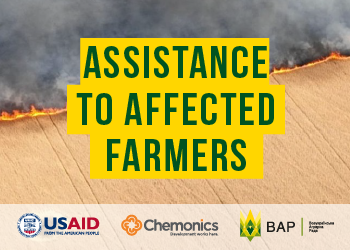Against the backdrop of the logistical collapse that Ukraine is experiencing due to the full-scale war, Dmytro Kysylevskyi, Deputy Chairman of the Verkhovna Rada Committee on Economic Development, proposed to discuss the idea of introducing export duties on agricultural products at the conference "Development Despite the War: Grain and Processing".
The Ukrainian Agri Council considers the introduction of additional fees in the industry as an attempt to completely destroy Ukraine's agricultural sector.
In the MP's statements, the introduction of new financial burdens is argued to calm down the protesters blocking checkpoints on the border with the European Union by introducing "self-restrictions." It will also allegedly make agricultural products available to domestic processors.
The blocking of the borders is more political issue than economic ones, as the vast majority of Ukrainian agricultural products are not shipped to neighboring countries but rather to ports in third countries. So, the introduction of export duties will not "calm down" the protesters. It is worth noting that most traditional crops are already sold for less cost, and there is nowhere to drop the price further. According to the predictions, the loss of crop production in 2023 will be more than USD 3 billion. If seaports operate on a consistent and clear basis, the figure could drop to USD 1.2 billion in losses.
In early November of this year, the Ministry of Agrarian Policy pointed out that fertilizer application for the 2024 harvest is expected to be half of what is needed. Here is a quote from the Ministry: "Due to disrupted logistics, low grain prices, and depletion of their own resources, small farmers are often unable to purchase the necessary fertilizers. According to a survey by the Ministry of Agrarian Policy, only 10 percent of respondents, namely large and medium-sized producers, are ready to fully meet their fertilizer needs." This will lead to a decrease in yield potential.
It is necessary to mention that farmers suffer from constant shelling, occupation, and thousands of square kilometers of mined agricultural land that cannot be cultivated. Government support for the sector has been almost non-existent since the full-scale invasion. The 5-7-9 loan program remains one of the most effective mechanisms, but many farmers have exhausted their loan limits. The introduction of the next stage of land reform on January 1, 2024, namely, raising the maximum amount of land to be purchased by one buyer from 100 hectares to 10,000 hectares, also brings down confidence in the future.
Although the press service of the Verkhovna Rada Committee on Economic Development mentioned the MP's words about the introduction of duties on agricultural exports as "controversial" and "a healthy provocation," we would like to point out that even discussing this idea is destabilizing and is harmful to market participants: buyers are not sure of the rules, exporters may start to lay down future losses now, and as a result, farmers receive a lower price for their products. The immediate introduction of export duties will harm the farmer the most and create an additional and unjustified financial burden.
We urge MPs to pay attention to solving the urgent problems of the agricultural sector and refrain from discussing "controversial" ideas.
Tuesday, 28 November 2023
